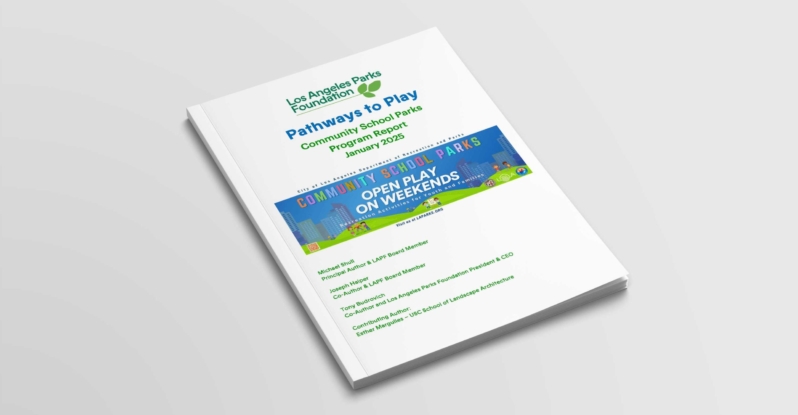Key Findings
- Urban gardens are multifunctional community assets, providing a source of nutritious food, a place for neighbors to connect, and an opportunity for people to gain new skills.
- Abandoned and dangerous properties can be transformed from liabilities to assets through the power community action.
Organization description
Founded by John George, Motor City Blight Busters (MCBB) has labored to stabilize and to revitalize Detroit since 1988. Originating with Angel’s Night Patrol (a citizens’ patrol on the night before Halloween to prevent arson and vandalism), MCBB relies upon community partners and a volunteer corps to transform vacant properties into lively community spaces. MCBB has painted more than 684 homes, secured 379 abandoned buildings, built or renovated nearly 300 houses, demolished 113 houses (using only sledgehammers), and conducted 3,850 neighborhood clean-ups. As a result, 1,160 people now have safe, up-to-code housing. Throughout the organization’s lifespan, they have raised over $20 million dollars to transform blighted areas. Motor City Blight Busters continues to conduct Angel’s Night patrols, host annual Thanksgiving dinners, and to offer free health screenings and skills training in building trades and culinary arts to community members.
Program description
For 27 years, Motor City Blight Busters (MCBB) has been striving to eliminate urban blight in Detroit by clearing away debris, demolishing derelict houses, and restoring select buildings to create a lively new downtown area for the Old Redford neighborhood. Three major projects – Artist Village Detroit, Veteran’s Village, and Farm City Detroit – are located within 1 square mile of the enovated neighborhood, and constitute a new “epicenter” for the community. Artist Village is home to Motor City Java and Tea House, the volunteer headquarters of MCBB and a cultural hub for the area, regularly hosting live jazz, open mic poetry and spoken word jams, art camps, and other community events. Chazz Miller, leader of Public Art Workz and “Picasso of Detroit,” offers free art classes to youth and has been instrumental in creating murals, sculptures, and other public artwork for Artist Village, Farm City Detroit, and the surrounding areas. The Old Redford Theater, Sweet Potato Sensations, Sam’s Shoe Repair, Ray-Anns Boutique, and Detroit Tires are a few of the other business that have been established in this new business center.
Veteran’s Village is an ongoing project to restore a multi-unit property to create transitional housing for returning veterans and to host various programs for veterans and other community members. In partnership with Gordon Soderberg, leader of United Peace Relief, this initiative allows veterans to receive training in demolition/reconstruction/lead and asbestos safety, disaster response planning, sustainable energy implementation (e.g. retrofitting vehicles, making biodiesel fuel, rebuilding sustainable homes), and hydroponics, aquaponics, and organic gardening on a year-round USDA FSA farm located in Farm City Detroit.
A local news channel features MCBB’s work
Farm City Detroit neighbors the two “Villages,” and currently consists of a community garden, newly planted orchard, and public park. After 10 abandoned buildings were demolished, the vacant lot might have turned into illegal dumping grounds, but the leaders of MCBB and Fertile Ground Collective turned this potential liability into a public asset. Community gardens were built and planted, partially accomplished with repurposed materials from the buildings that were recently cleared from the land. Kofi Royal, leader of Fertile Ground Collective, acts as a master gardener for Farm City Detroit and is supported by the activities of MCBB and its many volunteers. In addition to volunteer workers, MCBB hires 30 youth workers each summer to renovate Farm City Detroit, Veteran’s Village, and Artist Village, allowing them to gain valuable work experience, to develop a diverse set of skills, and to form intergenerational mentorship relationships with senior gardeners. All food produced by the community gardens is donated to the local population, and the food produced on the USDA FSA farm goes to market.
Farm City Detroit acts as both a park and urban gardening space and has become a place for community members to play, to connect with one another, to grow nutritious food, to obtain skills for creating their own personal gardens, and to simply sit and meditate amidst the greenery. An apple and cherry orchard was very recently planted on Orchard Street, which will yield not only fruit but also the many other benefits of trees, including the absorption of carbon dioxide, odors, and other air pollutants, provision of shade and mitigation of the “urban heat island” effect, increased natural filtration of stormwater, reduction of soil erosion, and enhancement of the general beautification and aesthetic appeal of the area.
In addition to these accomplishments, there are many exciting plans are in place for the future. Currently, MCBB and Fertile Ground Collective are working to improve the clay soil with mulch and leaf litter, developing plans to install fencing and lighting, constructing a greenhouse, and establishing a local farmer’s market.
Program goals/issues addressed
- Rather than becoming a hotbed for crime, illegal dumping grounds, and a general eyesore, abandoned buildings and vacant lots have been transformed into a thriving community asset
- Salvage from demolished buildings was repurposed into building materials for raised garden beds and fencing
- Harvest from the community garden is a source of healthful, nutritious food for the local population
- Volunteers and youth workers gain valuable skills in demolition, salvaging, and gardening
- Inter-generational relationships are created as a diverse set of individuals band together to create and maintain Farm City Detroit, Artist Village, and Veteran’s Village
Timeframe (planning/execution)
- Phase 1: 10 blighted properties demolished by hand
- Phase 2: Community Garden and Orchard planted; restoration of building into the farmhouse for a master garden; mulching and enriching clay soil in gardens
- Phase 3: General improvements to current garden and orchard, installation of fencing and lighting, construction of a greenhouse and additional farms
Funding Sources and Partnerships
- 2012: $120,000 from Skillman Foundation and Majorie Max Fisher Foundation
- Fertile Ground Collective
- United Peace Relief
Results achieved/impact
Farm City Detroit continues to grow and to improve, and many more promising results are anticipated. As of now, the accomplishments include the following:
- 32 neighborhood youths employed
- 3,000+ volunteers engaged
- Safer passages free from dangerous, abandoned properties
- Harvest of planted vegetables donated to the local community
- Salvaged materials from hand demolition of properties
- Creation of a sustainable, supportive neighborhood environment that fosters the creation of inter-generational mentorships between senior garden specialists and community youth
Contact
Motor City Blight Busters
info@mcbbdetroit.com
313-255-4355


